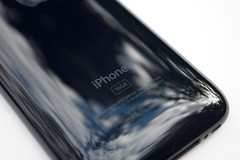How did Apple Underestimate iPhone demand?
Even 2 weeks after the release of the iconic gadget, shortages are being reported all over the world. AT&T and O2 are both reporting very limited amounts in stores and recommending that customers use direct fulfillment orders to ensure they are guaranteed a phone within 10-15 days. Apple stores seem to get a small shipment in each day, but most people do not welcome the idea of spending 2-3 hours in line at this point.
Apple reports that the shortages happened because they underestimated the demand of the iPhone 3g.
Seriously???
This is only the biggest phone launch ever. Apple planned to launch in 22 countries the first week, and 70 countries by the end of the year, hopefully. Any phone carrier that allowed pre-orders had to shut down their websites within an hour or two because of the excessive traffic. Apple has even given itself a goal to sell 10 million iPhones by the end of 2008.
Frankly, they wouldn't have such a goal if it were not attainable. And in order to attain it, they need to make that many phones available to the public. Kind of hard to sell 10 million phones when you don't produce 10 million phones, isn't it?
It is quite odd to me that Apple seems to continue sending shipments to their own stores while shunning the carriers that provide the phone service for Apple. I believe it makes sense in the US, where AT&T reportedly has offered an additional $100 commission to Apple for each iPhone sold in Apple stores. So of course Apple would favor its own stores in order to get more revenue per phone. What about the rest of the world, though? Does Apple require additional commission from every iPhone carrier in other countries?
Interesting that it's been announced another 20 countries will be launching the iPhone 3g sometime in August. With such a shortage, where will those phones come from? It'll be interesting to see if a large shipload of phones magically comes to those countries right in time for launch.
Apple knew the demand would be high. I don't buy the "underestimated the demand for the iPhone 3g" for one second! Apple decided to take a lesson from Nintendo when it launched the Wii...the short supply causes riots and forces little old ladies to punch defenseless teenagers, if that's what it takes to get their hands on one. The Wii has been out for months, but with no supply to be found anywhere, it keeps demand and prices higher. If it's so hard to find one, it's worth paying more to get one.
That's all it is. Apple knows 10 million people will buy the product no matter what. But these little tricks will help the company achieve higher revenues. It bugs the heck out of me and it upsets the 10 million others who really want one (They'll still buy it when the phones come in, but they're very upset nonetheless).
So lay it on me -- am I completely off on this one? Or have I hit bullseye? In my research I have found that Dan Moren from MacWorld agrees with my assessment that this is all part of Apple's strategy.
Recent Posts:
Should I Buy Phone Insurance?
LG Chocolate 3 Review Roundup
6 Must-Have Music Accessories for your Phone
Why is Innovation so Difficult?




6 comments:
They estimated high, and it wasn't high enough. Simple as that.
Apple underestimated the HUGE demand for iPhones at the $199 price point. Even two weeks out, there are lines for the iPhone at my local AT&T Store.
Have you any idea how many brand new Newtons wound up in landfills?
Caution can be a good thing when doing something new. You have to consider downside risk. Selling something four months later than you could have is preferable to taking a bath on a billion dollar's worth of gadgets the public decided it didn't really want after all.
('m not kidding about the billion dollars - that's my estimate of Apple's cost of building only 1/5 of the number of iPhones they estimated they could sell. Big money even for them.)
How many iPhones did YOU think Apple would sell? How many iPhones have they sold? Did you correctly estimate the demand for the new iPhone?
Unless you can answer question #2, you can't answer question #3.
Only Apple can answer question #2 at the moment, so only Apple can answer question #3.
I'm just wondering if they were trying to go the conservative route and play it safe.
I know they are a brilliant company; they are geniuses with their products and with the way they market it. So I'm sure they are doing this all on purpose.
Really, everyone who wants an iPhone will get one -- it will just take some extra time for most. For others, it will give them an extra moment to sit back and contemplate their decision.
Demand was over the top — even for an Apple gadget. Last time it took Apple 74 days to sell one million iPhones. This time? A weekend. :)
Post a Comment